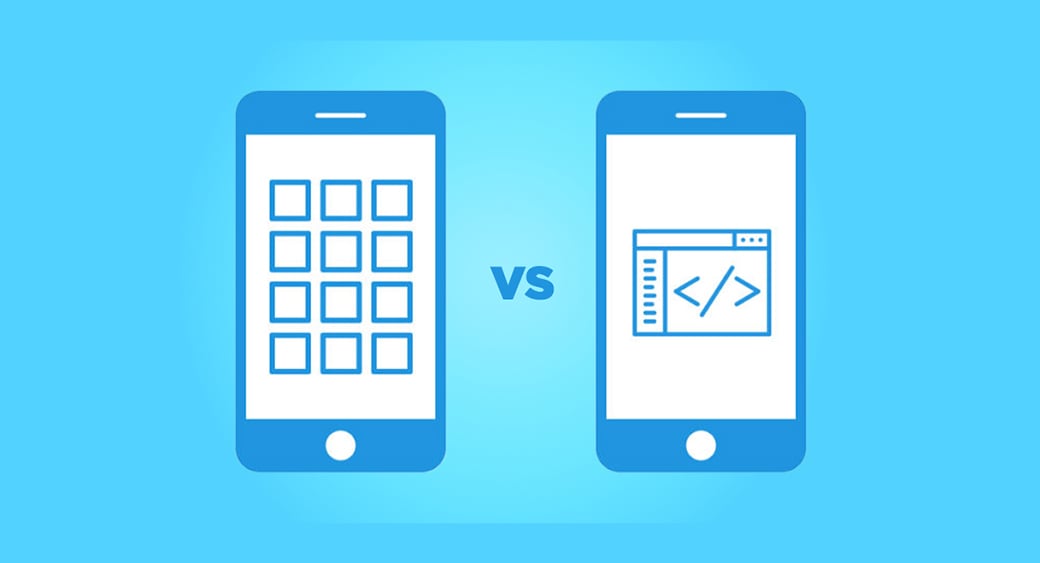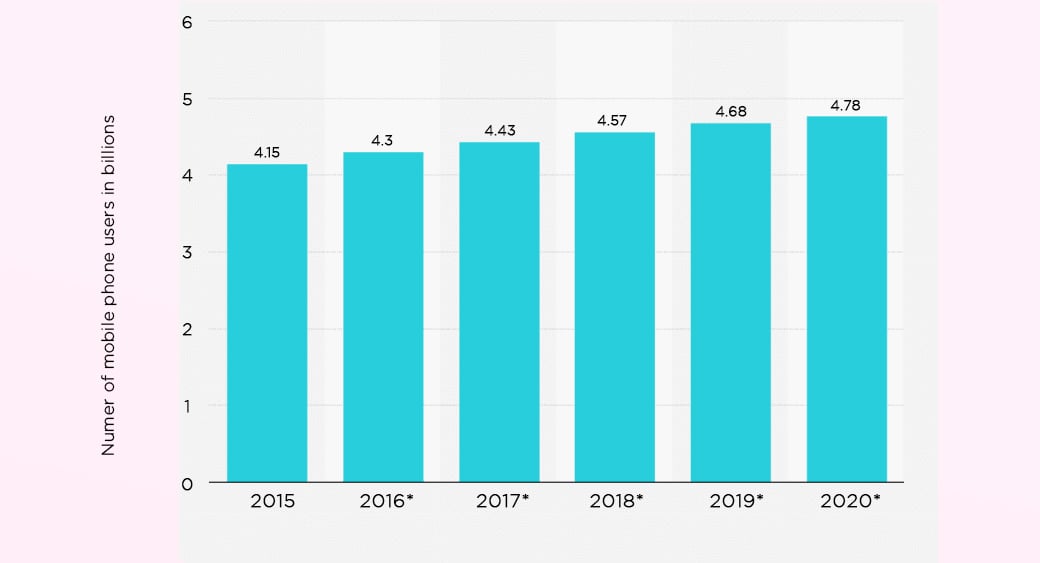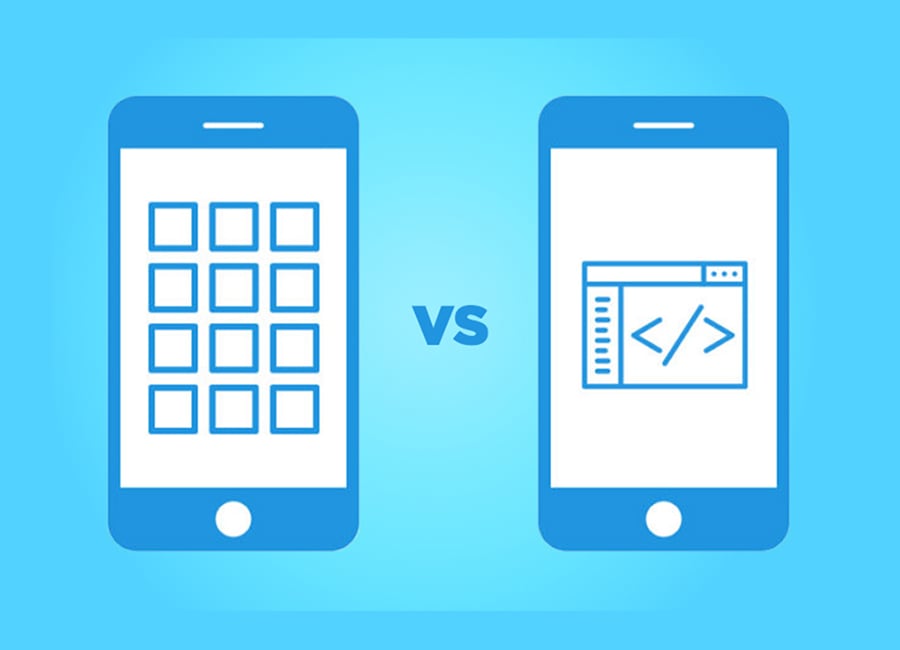Mobile, that’s the keyword. In the present scenario, you can also spell it as the smartphone. After putting everything related to web and mobile app development, today I will talk about the need for a mobile app and website and make a race named mobile app vs mobile website.

Many of the people get confused between the mobile app and mobile website; for them, it’s the same. But I am sorry my buddies, mobile app or mobile website are way apart.
Mobile App Vs Mobile Website
The mobile app is a software program that is designed to run on a phone and tablet. Nowadays, developers are also coming up with apps that are supported on the smartwatches also. On the other hand, a mobile website is a browser-based service that can be accessed from a phone or tablet. These devices must support a wireless network to open such mobile websites.
Now the question arises about the real winner between these two. Many people have voiced their pick as the mobile app and many other believe the mobile website as the perfect fit for the mobile users.
Before digging deep, take a look at the figures that will help you to grasp my research better.
Historical Background and Statistics
In 2016, about 62.9 percent of the global population already owned a mobile device and further, the number is expected to hit a five-billion mark by 2019. Among the top nations, China’s mobile connections in 2017 were predicted to be over 1.4 billion, whereas, India was able to garner one billion connections.

Thye rapid rise in the popularity of mobile growth can be credited to the seamless applications of the smartphone. With an ever-increasing demand for smartphones, the smartphone users were predicted to grow by one billion in the time frame of five years, starting from 2014. This takes the number of smartphone users to reach 2.7 billion by 2019. Not to forget over here, mobile manufacturers like Apple and Samsung are the top players with 18 percent of the market share distributed between both.
Now, I have shed the much-needed light on the mobile phone and smartphone users, so now to win over such a huge audience, you need to comprehend the difference between a mobile app and mobile website. Let’s analyze both.
Mobile App
A mobile app is a software application that can be downloaded from various stores like Google Play Market, App Store, or any other, depending on the type of OS that the device supports. Due to faster access and user-friendly interface, people tend to engage more with the mobile app rather than a mobile website. That`s why, most companies woud rather make an app than create a full-featured online resource.
As per a report by Flurry Analytics’ done in 2016, 90% of users preferred a mobile app than a mobile website.
If we talk about the time spent on the mobile apps then I must say, it is only increasing. In a survey by comScore, an average time spend by people of different age groups was defined. Across all age groups, an Amercian spent 140 minutes a day while checking out the mobile apps, which makes it two hours and 20 minutes.
If people are spending time on the mobile apps, it is due to the unfaltering app availability on different platforms. In 2018 itself, there are about 200 billion downloads as of now and still, there are more than five months to go. Following graph displays the mobile app downloads worldwide in 2017, 2018 and 2022 (projected). From 178.1 billion in 2017, the mobile downloads are going to jump to 258.2 billion in 2022.
Now, these figures firmly point out towards the unchallenged dominance of mobile app vs mobile website. The usage of the mobile app is directly related to applications it provides.
Apps like reminders, fitness trackers, and food or cab booking are such that can’t be replaced by mobile websites due to their real-time usage. Additionally, a mobile app can easily be integrated with smartphone features like camera and scanners. It also offers ease of sending push notifications to the users, and this will let you engage with the users directly.
Hence, before jumping into any inclusion, you need to weigh your options thoroughly.
Advantages
- Convenience: You can open an app with a flick, whereas, for a website, you have to open the browser and then enter the URL, it does take more time than opening an app. Also, a mobile app can send push notifications. Thus a mobile app delivers a better user experience.
- Customization: Not only you can sail through an app easily, but you can customize them as per your convenience. As a user, you can pick your preferences, set accounts and much more. Whereas, as a developer, you can roll out features depending upon the target audience.
- Offline Support: The offline support is a major bone of contention between mobile app vs mobile website. Mobile apps can be played at any given time. Most of the apps don’t require a network connection to work. This makes it more usable than a mobile website.
Disadvantages
- Compatibility: There a few platforms on which 90 percent of the smartphones thrive. iOS, Android, and Windows make the significant portion of it. Therefore, to cater to every platform, the developer has to work accordingly. However, there is a perk of cross-platform apps but then there are concerns over the same user experience on every platform, which cross-platform apps do lack.
- Maintenance: If you haven’t invested in the cross-platform app, you are going to pay for it. Every single app that you have developed will ask for maintenance, and that will add to more efforts, time, and money. The app also requires upgrades and fixes now and then. It will further escalate the cost.
Mobile Website
As the name suggests, it’s a website that is a browser-based way of accessing internet content. The bent that differs mobile websites from other websites is the fact that a mobile site design is created in accordance to a mobile device and if such a website is opened on a desktop, the display would not be symmetric.
Lately, the trend has shifted from mobile website to a responsive website. The mobile websites developed with responsive design that contains HTML pages linked together are the responsive website. This way, the mobile sites can be designed to display rightly on all screen sizes. Such websites don’t pose any issue while opening on the desktop or a tablet. Moreover, these websites are perfect for devising marketing strategies as it can multiply the reach.
With such features, the tussle of mobile app vs mobile website gets more intriguing.
Advantages
- Compatibility: A mobile site design is compatible with various sorts of mobile devices. A user with multiple devices will appreciate a mobile website rather than an application which he has to download on each device. Also, a mobile website can be incorporate mobile features like messaging and QR codes.
- Accessibility: With responsive web design, it’s always easy to reach a greater audience, as it can be operated on many devices at once.
- Maintenance: If you own a mobile website, you just have to update a single version of the website, and every user will be able to experience it. It also takes fewer efforts to make changes as compared to the mobile app.
Disadvantages
- Convenience: A mobile website can’t be integrated with smartphone features like GPS, Camera, and others. Although to solve this issue, developers are bringing APIs and libraries. Other than that, a mobile website design is to support multiple screen size; therefore, it will not always display full content on your screen. You need to find your content by scrolling up and down to the website. Thus convenience remains a major element between mobile app vs mobile website.
- User Experience: The user experience is one thing that can hamper the overall impression of the mobile website. Mobile is designed while keeping in mind about the mobile requirement thus it offers a better user experience as compared to the mobile website.
- Offline Access: This is one thing where mobile app ranks over the mobile website. Irrespective of design and size, a mobile website needs a network to open. Without a connection, you will be disabled to operate the website.
Mobile App vs Mobile Website Verdict
Now as you know in and out of the mobile app and mobile website, I would recommend you to take a final call depending upon your priorities. Both the web and mobile app development have their own pros and cons but at the same time, have their personal relevance. The battle of mobile app vs mobile website is on.
Some might pick mobile app due to its rich user experience, and some may go with the mobile website as it is compatible with multiple devices at once. Moreover, the business setup also affects the platform. If it’s about Snapchat, the company will prefer a mobile app rather than a website, mainly because of the notification factor. On the other hand, if a travel blogger wants to contain the audience, he will opt for the mobile website because it will display better content.
Thus the buck stops with you. What are your needs, and how you want to reach to your audience; once calculated, make your move between the mobile app or mobile website.
